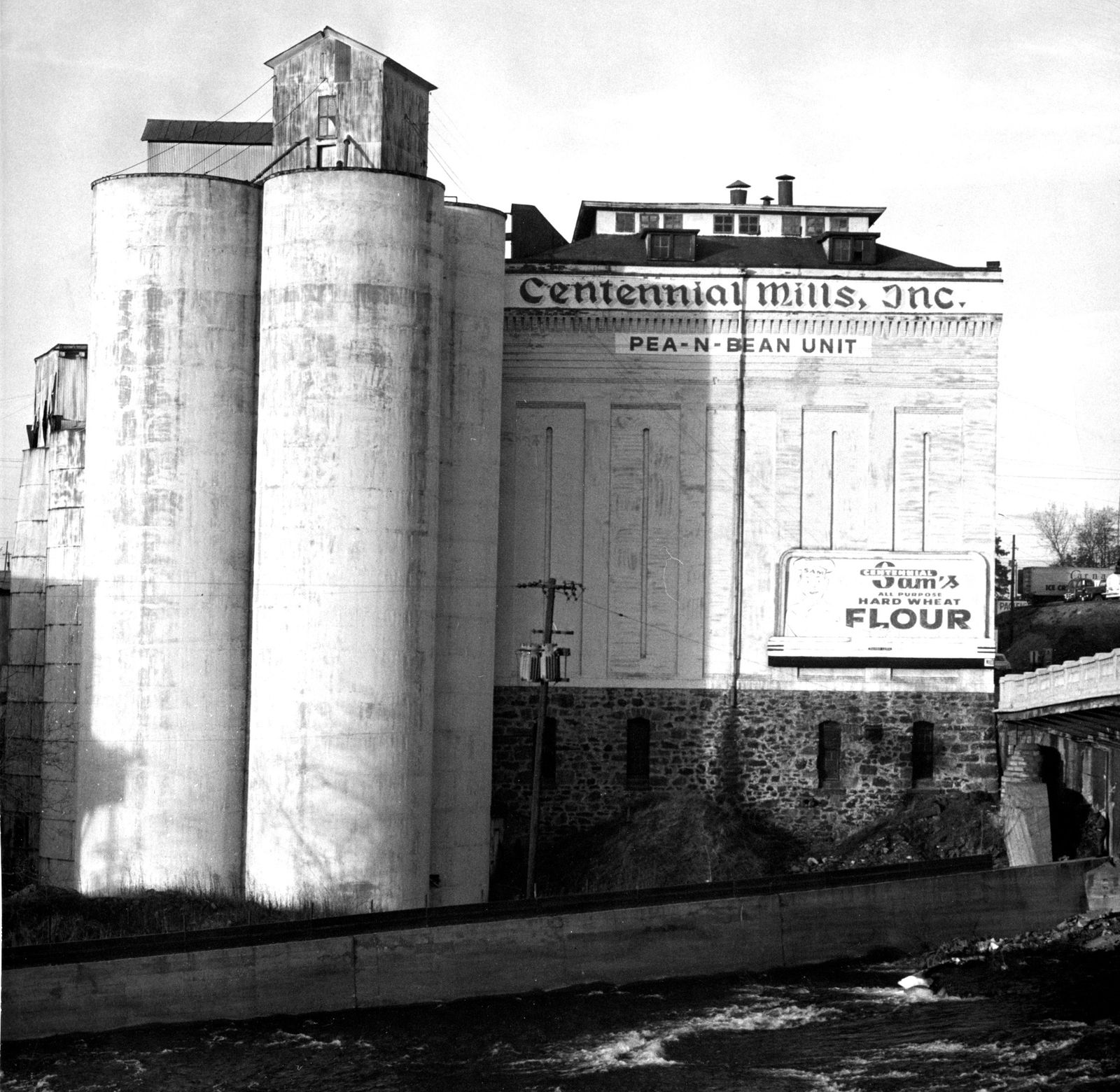
Centennial Mills flour mill
The first businesses in Spokane, after early trading posts, were water-powered grain and timber mills. Four major grain mills were established in early Spokane: C&C, Echo, Spokane Flour and Centennial Mills. The history of Centennial mirrors the growth of wheat and corporate agriculture in the 20th century.
Section:Then & Now
Image One
Photo Archive
| The Spokesman-Review
Image Two
Jesse Tinsley
| The Spokesman-Review
The first businesses in Spokane, after early trading posts, were water-powered grain and timber mills. Four major grain mills were established in early Spokane: C&C, Echo, Spokane Flour and Centennial Mills. The history of Centennial mirrors the growth of wheat and corporate agriculture in the 20th century. Iowan George Pahl founded a small mill on the north bank of the Spokane River in 1889 with Moritz Thomsen, born in what is now Denmark in 1850, as a partner. Thomsen had refused his father’s entreaties to become a tenant farmer like himself and shipped out on merchant ships at the age of 14. He traveled the world and survived a capsizing and shipwreck and was once captured by South Seas pirates from whom he escaped. After he was trained and promoted to first mate, he married and moved to America. He took a job in a Chicago packinghouse for $1.50 a day. He said it was the hardest manual labor he had ever endured, but did it for 17 months before buying a farm in Iowa. Later, he started a farm implement business but was immediately wiped out by a fire, so he scraped together enough to invest in the new mill.. Sixteen months later, Thomsen bought out Pahl and went on to build or buy mills in Seattle, Tacoma, Ritzville, Chelan, Sprague, Paha, Wenatchee, Reardan, Creston, Harrington and Portland. Thomsen died in 1932. In 1940, the company built the large milling complex on East Trent and later tore down the one on the north bank in 1963. In 1960, Centennial Mills merged with United Pacific Corporation, later called Univar. Centennial was bought by Archer Daniels Midland, which operates many mills in the Northwest, in 1981. The Thomsens, who lived in Seattle, had four daughters and one son, Charles Moritz Thomsen, who had worked in the company but called his wealthy father “tyrannical” and went into the Peace Corps in the 1960s. He lived in a small Ecuador town until his 1991 death and wrote four books, including “Living Poor: A Peace Corp Chronicle.” Author Clinton Snowden wrote of the elder Thomsen in “History of Washington: The Rise and Progress of an American State,.” “As in his early career, when a friendless and penniless boy before the mast, he is a tireless worker; and frequently he is the first to arrive at the company's offices and the last to leave.”
Share on Social Media

